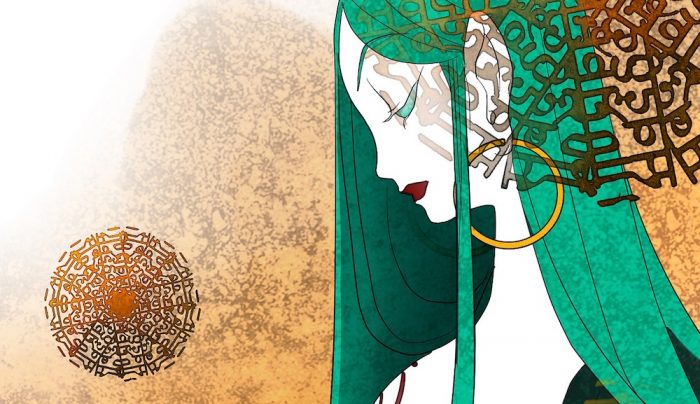I write about my human experience and specifically about life events that have brought me to the current path on which I tread. My new journey is deliberately designed to enable me to heal, reset, and to use these positive changes in my life, in a way that leaves me happier and healthier. I guess you could call it a “do-over.”
~
I recently wrote about how fully embracing the concept of impermanence (the Buddhist concept of Anicca (Anitya in Sanskrit) allowed me to view grief in a healthier way.
Due to the profound affect this methodology had in improving my mental health, I’m keen to provide a little more narrative around the subject.
Buddha was asked: “What have you gained from meditation?”
He replied: “Nothing! However, let me tell you what I have lost: anger, anxiety, depression, insecurity, and fear of old age and death.”
Since starting my journey of personal development, I’m regularly contacted by people who feel my words have resonated with their own experiences. It is most humbling to have total strangers reach out in such a candid and trusting way. For me, these encounters stand as a timely reminder that we are all so much more similar and closely connected than any one of us cares to consider.
My musings have sparked discussion about how accepting impermanence is often easier said than done. So I want to delve into the concept of Anicca, and then touch on my own recent experiences with change and how I coped by using the new tools I have learnt.
The three Buddhist marks of existence
Whilst I find an unequivocal amount of truth in the philosophies, I am not a Buddhist, nor is this a theology lesson. More like a life lesson based on personal experience. Thus, your interest or lack thereof in organised religion should not dissuade you from reading this story.
Do you experience anger, anxiety, depression, or insecurity? Do you fear loss? Do you fear death? Of course you do! You’re only human, after all, and so I invite you to read on.
Anicca belongs to a trinity that makes up the core teachings of Buddhism. As with most Buddhist teachings, the concept is simple and profound in equal measure. The three marks of existence refer to the characteristics which apply to the natural order of things. Three universal truths, if you like.
Dukkha (suffering)
Also translated as “pain,“ “unsatisfactoriness,“ or “stress,” the teaching here is simple. For us, change brings a feeling of being unsatisfied. The only way to free oneself from the pain of holding onto permanence is to fully accept the absolute inevitability of continual change.
Anicca (impermanence)
Whilst the word “Nicca” refers to the notion of permanence and continuity, “Anicca” refers to its opposite: the absence of the two. Simply put, nothing is permanent and all things change.
Anatta (selflessness)
There is no unchanging permanent self—no inherent “I” or “me.” There is no independent existence.
In a nutshell
We experience life through perception, senses, and form (the body, its senses, “stuff”), and through consciousness. And so we cling to things—and experience suffering as a direct result.
So understanding Dukkha, Anicca, and Anatta are steps in the Buddhist’s spiritual path toward enlightenment. If you’re not quite aiming for enlightenment, then how about simply shooting for a significant improvement in your levels of happiness?
How I changed
In late 2018, as my dogged determination to forge ahead began waning like a vintage tractor, my younger brother said something to me which stuck hard and fast: We are human beings, not human doings.
As a being, I was constantly stressed and sick with worry about my future, whilst filled with regret over my past. I could see no alternative to the concept of attachment, and so I held a determined focus on owning, collecting, and doing. It was as if these things somehow made up my identity. I was searching for happiness in “stuff”—in my humanity, in other people, in my business, in drinking and drugs, and in any and all distractions that would keep me away from my true self. I needed these attachments, as I misguidedly thought they made up my identity. As a being, I couldn’t get past the concept of attachment—of my determined focus on doing.
I’ve never been a stranger to change, and in fact I’ve always welcomed it with open arms, encouraging it to bring a few sticks of dynamite along for added drama. I’ve often made wholesale changes—either to run away from or toward something. Or because I instinctively knew I did not belong in that relationship, partnership, friendship, or place. I also made plain old bad life choices, charging ahead impulsively whilst giving little consideration to the consequences.
Either way, whilst seemingly moving forward, I was actually going nowhere of any substance, swimming (and slowly drowning) in treacle.
The thing is, whilst change happened all around me, I wasn’t actually embracing it at all. Not in the right way. I constantly complained and worried. My high expectations and inherent need to force everything to happen my way fought the natural order of things. As this approach to life continued to fail, I kept all of this pressure and disappointment inside. My mind overflowed with worry and woe like a badly poured glass of champagne. It took another nervous breakdown and a full-on life reset for me to find the space to realise the absolute futility of this way of thinking.
Once I’d come around to observing and understanding all of this, I saw I had to make some wholesale changes to how I lived with attachment.
Fear of change
For most of us, change is difficult to accept—impossible, even. Fear of unknown alternatives and fear of loss drive our decision-making and our mindsets. After all, without other people, other things, distractions, “stuff” constantly in our lives, what else is there? What are we to focus on?
I was focusing on the wrong things. I came to realise how much unnecessary suffering I was causing for myself, how much stress and worry I piled into my already busy mind. And so I invited myself to sit with and fully understand Anicca. In doing so, I had the beautiful realisation that answered the problem perfectly for me.
The only way to free oneself from the pain of holding onto permanence is to fully accept the inevitability of continual change.
In February 2019, I quit my whole life. I closed down a successful business, sold or gave away everything I owned, and said farewell to some most wonderful human beings—many of whom I knew I would likely never see again. My best pal in the world (Macy the Beagle) and I travelled 7,739 miles across the globe, to start a new life in Bali. Change.
I began to let go of all the things that I’d previously convinced myself were the essence of my identity, learning to let go of my attachment. This huge resetting move gave me the chance to clean the slate and to just be in an entirely new way—through mindful meditation, eating, and exercise. My regular practise of meditation has allowed me to learn how to clear my mind of futile thoughts and to observe events for what they are—impermanent.
The peace I’ve gained through regularly exercising my mind has created an entirely new space for me. Within this space, I am able to consider how to live my life (how to be) with a calming sense of purpose and happiness.
So I embraced impermanence and learned to give up suffering. Since I’ve grasped and begun to mindfully practise this philosophy, everything has changed for me.
Nothing lasts forever. It’s logical and simple. I know, it’s easy to understand, yet it’s by far the hardest to accept or learn. However, I can categorically confirm that if we can unlearn our natural predisposition toward attachment, it will unlock a beautiful and entirely more healthy way of thinking and being.
Endings invite beginnings
Comparison, competition, judgment, anger, regret, worry, blame, guilt, and fear—now, instead of carrying, burying, or suppressing these feelings, I’m learning to surrender and to let it all go. First, I sit with my thoughts and I spend time in that pain for a while, breathing and working through it, observing and understanding that it will change. Staying present all along the way. Of course I know that at one point soon, new experiences will enter. New energy, new life, new sadness, new joy, new lessons. Constant change.
I’ve learnt to see the beauty in change, and thus I’ve learnt to cope better with pain and suffering—both of which usually ride along in the back seat like unwelcome passengers, constantly moaning and insisting that they know the best route to Happy Town. They’re wrong, though. So, so wrong.
Of course, Buddha also said, “Pain is inevitable, suffering is optional.”
The choice is entirely ours; it’s as simple as that.









Read 49 comments and reply